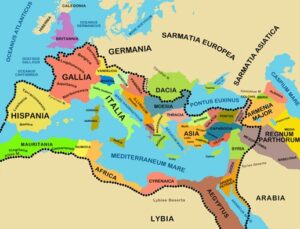
Arquivo para a ‘Information Science’ Categoria
Plurality, polyphony and tonality
Although Byung Chul Han in his reading of Heidegger and his affective tonality, describes plural democracy only in passing, when commenting on “polyphony” that Derrida opposing “totality does not exclude tonality. The juxtaposition of notes would be equivalent to the monotony of a disturbed heart, which would certainly be distinct from the atonal heart” (Han, 2023, pg. 16).
of Heidegger and his affective tonality, describes plural democracy only in passing, when commenting on “polyphony” that Derrida opposing “totality does not exclude tonality. The juxtaposition of notes would be equivalent to the monotony of a disturbed heart, which would certainly be distinct from the atonal heart” (Han, 2023, pg. 16).
To better develop the question of the state and its plurality, Heidegger approaches the “art of living… limited where the world begins to be populated with the hearts of others, where we no longer find ourselves in proximity to the aesthetic” (page 17 ).
It will explore Hegel’s conflict of hearts that he intended to resolve dialectically and does not appear in Heidegger (pg. 18), his “poetics” is not identified “with the politics of the heart” (idem).
After the failure of the subject of Faustian pleasure (Hegel quotes Goethe’s Faust), Hegel, when opposing the particular with the universal, does not find himself again in the “universal order”, this immediate opening of the heart to the universal, the universalization of the heart makes self-consciousness “go crazy” and cause a head-on collision between the universal and the particular that splits consciousness (pg. 18).
Generating this “singularity of consciousness, which wants to be immediately universal” results in schizophrenia (pgs. 18-19), is a fundamental excerpt from Byung-Chul Han capable of explaining even the great wars and the global war moment.
She shows what happens to hearts with the “pulse of the heart” towards the universal, which turns into “the fury of a wild presumption”, postulates “the madness of the world order” (pg. 19), the effective heart is repressive , is effective by repressing other hearts.
The circumcision of the heart of the particular by the “spirit” (claimed by Hegel), suppresses the particular in favor of the universal, “knowing the law of the heart as the law of all hearts, and the consciousness of the Self as the recognized universal order” (Han quoting Hegel, pg.20).
Heidegger opposes the law of the house (oikos), of the domestic fire beyond the dialectical economy, it “must not step on the stage of speeches” (Han, pg. 21), this “dispute without war” (in Hegel’s view) does not bears no family resemblance to the conflict of speeches (pg. 21).
“Hegel’s heart, which in the third part of the Encyclopedia becomes the seat of sensations, lacks all objectivity and universality” (Han, pg. 22), in it Hegel’s “blind heart only knows how to express something “singularized, contingent, unilaterally subjective” … “it is a merely subjective reaction to external sensation” (pg. 22), and Han gives the antidote, calling it a gift.
The Being with a gift is the “singular par excellence, which, in its singularity, is solely the uniquely unifying one, before all number”, the impossibility of number nullifies the economy of exchange (pg. 25).
What must be taken back must be given as a gift, it is necessary to keep this gift away from the economy of exchange, to release it from the economic circle of exchange”, this is the principle of affect.
Han, B.C. (2023) Coração de Heidegger: sobre o conceito de tonalidade afetiva em Martin Heidegger (Heidegger’s heart: on the concept of affective tonality in Martin Heidegger). Transl.Rafael Rodrigues Garcia, Milton Camargo Mota. Brazil, Petrópolis: Vozes.
Ontology, Kant and affective tone
 Like a good Oriental man, although based in Germany, Byung-Chul Han starts his analysis not from the objectivist, materialist and substantialist´s perspective of the classic authors of Western philosophy, but from the perspective of what he will call “affective tone” in Heidegger.
Like a good Oriental man, although based in Germany, Byung-Chul Han starts his analysis not from the objectivist, materialist and substantialist´s perspective of the classic authors of Western philosophy, but from the perspective of what he will call “affective tone” in Heidegger.
His book, different from others that I consider essays, analyzes “Heidegger’s heart: on the concept of affective tonality in Martin Heidegger” (Ed. Vozes, 2023), with this new, human and I would even say spiritual analysis of the core of philosophy western.
Part of a concept dear to Judeo-Christian civilization, which is that of circumcision, but circumcision of the heart and not of the failed organ (the skin attached to the beginning of the penis), it is necessary to remember that although it is a male organ, it is an emblem of power, of authority and desire, was culturally a warlike culture.
Apart from his religious vision, he has a spiritual sense for the whole society, contrary to what Han will develop, which is the circumcision of the heart, that which modulates and governs affection.
It begins with what is the root of Eurocentric culture, starting with Kant’s hypochondria, which he confesses in his text “Conflict of the Faculties”: “because of a flat and narrow half-chest, which leaves little space for the movement of the heart and lungs, I I have a natural predisposition to hypochondria, which in previous years bordered on the boredom of life” (Han, 2023, pg. 8), and then develops “yearning expands the heart, makes it define and exhausts the strength” (pg. 9 ).
This longing, you will say, is not also painless for Heidegger, but according to this author (it was Han’s doctoral thesis), the longing is the “pain of the proximity of distance”, the spell of the “always-the-same”, but in a movement of leaving the in-itself there is a “seam” with the Other (for example, rescue in natural disaster in south Brazil, foto).
Thus, Han will say, Heidegger’s “seamstress (Näherin), “works in proximity”, is also a circumciser of the heart (pg. 10), developing it by converting it “into a heteroauditory eardrum” (pg. 10) , “the heart of being-there” throbs in the transcendental horizon, thus according to Han in the late Heidegger, “the constriction penetrates more deeply” and being-there separates itself from the being of there: Da-Sein (Han, pg. 11 ).
Thus, “this circumcision frees the heart from subjective interiority” (Han, Idem), and there is a surprising preliminary conclusion in Heidegger: “Heidegger’s heart, on the other hand [confronts with Derridá], listens to one voice, follows the tonality and gravity of the “one, the only one that unifies”, for him it is an “ear of his heart” but there is something strong spiritual in this.
Spiritually there is an inner voice that speaks to our hearts if they are circumcised.
Heidegger, M. (2023) Coração de Heidegger: sobre o conceito de tonalidade afetiva em Martin Heidegger (Heidegger’s heart: on the concept of affective tonality in Martin Heidegger). Transl.Rafael Rodrigues Garcia, Milton Camargo Mota. Brazil, Petrópolis: Vozes.
The world-man and the provincial
It is possible for someone to have a feeling capable of embracing humanity in its differences and contradictions, if they are capable of embracing the illnesses and wounds of others.
of embracing humanity in its differences and contradictions, if they are capable of embracing the illnesses and wounds of others.
He who is capable of understanding the world as a whole, understanding the complexity of different cultures, feelings and cultural systems, is capable of embracing and sympathizing with the pains of humanity, this is a man-of-the-world.
The provincial is not able to see beyond his village, one can even praise the spirit of apparent peace and delight of those who live in a small world, or in a bubble, but it is from there that the worst prejudices, the worst xenophobia and the inability to see beyond.
If Honoré de Balzac said: in the provinces we live in public, now in the global village we all live in public, each citizen carries a camera that can record everything.
To be a sign of hope in the world, in an increasingly conflictive time, it is necessary to go beyond our own concepts (which are pre-concepts) and understand that the logic of social life has been changing since we started living in a global village, culture enters through TV, radio and social media, and there is no going back, they are here to stay.
The sins and misunderstandings that they gave rise to are not new, they have just become more visible now and we are faced with a society that has difficulty seeing others with respect and understanding.
Those who want freedom are quick to limit it, those who proclaim love do not want the same love outside their bubbles, we do not resolve our difficulties and wounds and at the same time we increase the climate of misunderstanding in humanity.
The great contemporary empires work culturally on these difficulties, hatred of those who are different, intolerance to the culture of others, and thus we feed in microcosm the policy of a growing warmongering that threatens to take over all of humanity.
It has never been so urgent to love one another, there are even those who proclaim it, but for their small village or their provincial bubble.
Medieval empires and the sunset
Roman civilization already existed, but as an empire it began in 27 BC when the Senate and People of Rome proclaimed Octavian prince, which in the original meaning is “first citizen”, and as such should be venerated and the conquest of different territories.
empire it began in 27 BC when the Senate and People of Rome proclaimed Octavian prince, which in the original meaning is “first citizen”, and as such should be venerated and the conquest of different territories.
The Roman Empire lasted until 476 BC, when Romulus Augustus was dethroned by the Heruli, who were the Germans, but who came from further north and, according to some historians, originated in Scandinavia.
A little-known historical fact is that it was after the death and crucifixion that Rome finally dominated and subjected the Jewish people, the troops of General Titus took the city of Jerusalem on September 8, 70, the Temple that had been built by Solomon (970 BC) is set on fire and the inhabitants are deported as slaves.
In the underground of the Roman Empire there lived several people who, despite being subjected, maintained their culture and spirit, and among these people were the Christians who grew in number and the apostles were esteemed by the entire community.
What connects the people and their own cultures, was the solidarity and the spirit of love that existed between them, unlike what happens today where there is division between the people themselves, the unity between the communities was strong, and the idea of states also grew from the republican vision of Plato and Aristotle, but the imperial vision and wars remained.
If these empires and wars can really be thought of as a dark time, in the monasteries and small agrarian communities where life continued to flourish, both the civilizing process and the preservation of their original cultures, it is also from the end of this period that the Turkish-Ottoman empire , in addition to being one of the longest in history, from 1299 to 1923, a period that included other empires in Europe such as the Carolingian from 800 to 888.
They all suffered decline due to their internal contradictions, the always oppressive and warlike spirit that may seem to be the driving force of history, but it is precisely the opposite, cultures survived despite these desires for submission and oppression of different peoples.
There is always hope and life for those who remain towards human civilization.
Modern empires and work
The beginning of modernity marked a rupture between the practical world, objective of reason, called objective by idealism, and a sensitive world, of love, hope and balanced life, where human nature can express itself and develop, called in an incorrect way of subjectivity (which would be typical of the subject).
between the practical world, objective of reason, called objective by idealism, and a sensitive world, of love, hope and balanced life, where human nature can express itself and develop, called in an incorrect way of subjectivity (which would be typical of the subject).
There were many authors who from the beginning of the 20th century began to question this division of man into vita activa and vita contemplativa, Hannah Arendt and currently Byung Chul Han are the most remembered, however the idea of contemplation comes from antiquity, from Stoics and of some mystics studied in Patristics, such as Gregory of Nazianzus, (329-390) one of the masters of contemplation being cited by Chul Han.
The word work comes from tripalhium, it arises from medieval tortures that allude to removing the “guts” from the continuous effort without rest that will mark the beginning of the industrial revolution until the achievement of the limit of working hours and some minimum laws of respect for life human.
In the Middle Ages, it was in monasteries that the first crafts, cooking techniques (such as sausages made to preserve meat) were born, and also libraries and copyists who began contemplative human work (it is not subjective), such as motto among Benedictine monks: ora et labora (meditate and work).
It is good to remember that the heavy work until the emergence of monasteries was done by “free” men and that many monks had noble origins and went to the monastery to learn how to work and also to read and write because a large part of humanity at that time was illiterate, and the prevention of myopia and hyperopia must also be remembered, as glasses and lenses date back to the end of the middle ages.
After the conception of modern industry and the state, which is also the boss of state-owned companies, monopolies in socialist countries, which are no different in demanding efficiency and maximum effort, imprisoning man in the “vita activa” with no space to be and develop their full life, with space for meditation and leisure.
Already in the English industrial revolution, Gin (which is the pinga in Brazil) moved the maximum capacity of modern industrial slaves deprived of domestic life, leisure and culture.
What the post-industrial, post-modernist society will be is still unknown. For now, the empires want a monopoly on the productive forces to guarantee power over the workforce and not give freedom for full human development, full life is postponed.
The great divine gift that is life and living it in abundance will depend on great changes, empires fight to ensure that this does not happen, although they say it is for freedom.
The great empires in antiquity
There is always a historical and a biblical narrative, the dates coincide, but the battles do not.
narrative, the dates coincide, but the battles do not.
One of the great empires of antiquity was Assyria, from the 7th century BC (approximately 721 BC until the 630th century BC. the beginning of its fall, they dominated a large part of Arabia, conquering the Babylonian lands, which dominated the Hebrew people and the Chaldeans, Egypt, the Medes and Elamites.
The biblical narrative focuses mainly on the period of Sargon and Sennacherib (745-661 BC) and it is from this time that the prophet Isaiah narrates the words of Sennacherib to Hezekiah: “this is what you will say to Hezekiah: Thus speaks the great king, the king from Assyria where so much Confidence comes from, the king mocks him for the alliance he had with Egypt and will also conquer that people.
In Isaiah 37, there is the following narrative about the years of suffering, followed by victory, “this year they eat stubble; next year, what is born alone; But in the third year I will plant and you will reap; you will plant vineyards and eat their fruit” and then further on he narrates a battle in which “the angel of the Lord appeared in the Assyrian camp and struck down eighty-five thousand men”, even today a very high number.
What is certain is that in the year 630 BC the Assyrians retreat from Egypt and then from Babylon, which will also dominate the Hebrew lands in Isaiah 39, initially the king of Babylon, Merodach-Baladan, sends messages and gifts to King Hezekiah, who was ill. , but then the prophet Isaiah warns King Hezekiah: “Listen to the word of the Lord of hosts! The time is approaching when everything that is in your palace, everything that your fathers have accumulated until this day, will be taken to Babylon”, and so it happened during the 50 years of the Babylonian exile.]
Who freed the Jews. It was King Darius, who ruled the Persian Empire and who was an enemy of Babylon, through the prophet Daniel, whom he venerated for his prophecies, granted the Jewish people to rebuild their temple and return to their land.
The Persian empire lasted until 330 BC and is well known in official historiography because of the “medical” wars between the Greeks and the Persians, but see that historically the Medes were a people to the east of Assyria, while the Greeks to the west and already on the European continent, it turns out that they were simultaneous in the period from 500 to 448 BC for more than 50 years.
Between wars and challenges, oracles and prophets helped the people to walk through these periods.
The possible historical lesson is that great empires fell due to their pride and oppression, the spiritual lesson is do not let your heart be intimidated, evil dies by its own evil.
Pre-occupation and pre-concepts
It’s not about playing with words, they have a clear meaning without the hyphen, issues that occupy our mind and become challenging, and prejudices when socially and structurally stimulated put people, individuals, ethnicities and peoples into discredit.
meaning without the hyphen, issues that occupy our mind and become challenging, and prejudices when socially and structurally stimulated put people, individuals, ethnicities and peoples into discredit.
However, there is another meaning for those who care about mental health and social health, where it is possible to live with difference, with the Other and with the contradictory, this is spiritual health, in the sense of making the spirit resist a hostile environment.
The objective of leaving a person in discredit through prejudice cannot be confused with the intolerance and lack of love of the pre-concept present in the structure of dualistic thought: subject x object, natural x cultural, body x mind, in which resides a good part of the resistance to dialogue and openness to the different Other.
Some authors consider that prejudice as discrimination (Erving Goffman for example) is more relevant than the stereotype made about certain individuals, but these authors also understand that there are anti-dogmatic characteristics that can articulate the relationship between prejudice, stigma and discrimination (Goffman himself does this).
From the perspective that the pre-concept is interesting to man and his perception of truth (Gadamer, 1997), the way of conceiving and understanding reality regarding a given phenomenon must first go through a pre-understanding or pre- concept of this same phenomenon, that is, we hardly go to reality without any concept about it, for this we need a phenomenological epoché, says good phenomenology.
I say this before pre-occupation, because in general a large part of natural and existential phenomena pass through a prejudiced filter, in the sense of pre-understanding, and thus the knot and veil over reality is established, an attitude is needed to go forward, letting the occupation (and not its pre-establishment) acquire the right place in due time.
Hope (and for those who believe it is faith) enters this vacuum between the two stages, the pre-occupation that may be surrounded by preconceptions of reality, and the truth established by the phenomenon itself, some will think the fact, but the phenomenon or the thing in itself, is its own and the fact always depends on a narrative subject to preconception.
In short, don’t worry too soon, let the phenomenon and reality speak for itself at the exact time of your “occupation” or in ontological terms of your “presence”, your da-sein.
GADAMER, H.G. (1997) Verdade e método. Tradução Flávio Paulo Meurer. 3ª. ed. Petrópolis, Brazil (RJ): Vozes.
The return to the nations and the absence of the Whole
In a time of hypercommunication, social media makes one feel the absence of the Whole, which Peter Sloterdijk calls the Big: “the form of the big in the industrial world insists on the well-known megalopathic stress in expanded dimensions – but then the people on the street must worry, who previously would have supported a Minister of Foreign Affairs” (Sloterdijk, 1999, p. 61), what he did not imagine was that this would have the opposite reaction: the return of patriotism.
makes one feel the absence of the Whole, which Peter Sloterdijk calls the Big: “the form of the big in the industrial world insists on the well-known megalopathic stress in expanded dimensions – but then the people on the street must worry, who previously would have supported a Minister of Foreign Affairs” (Sloterdijk, 1999, p. 61), what he did not imagine was that this would have the opposite reaction: the return of patriotism.
However, only unexpected forces realized this effect, while today’s society: “suffering bouts of nausea in the face of its political class, at the moment cannot do more than grant a pause for reflection on fundamental questions” (p. 62).
The author notices the lack of “something”, the emphasis is his, but prefers to “interpret it as the spirit of the agrarian age” and the great empires (pg. 60), and in his agnostic vision, “for her came the critical moment with the “death of God” “ (idem), again the emphasis is on the author.
Thus in the absence of an eschatological figure, in a world that rejects the idea of the sacred, the divine and a human-divine God of Christians, “the form of the Great is changed, filiation pathologies of all kinds become epidemic” (pg . 66), not only in politics, but also in religion, everyone believes they have found a “great one” and heretically places him in the place of God, even in religions an imaginary god of wealth, leisure and even lust, however contradictory it may be. as it may seem.
The book from the end of the last millennium, understands the problem right but in the wrong place, under the theme of “conservative revolution” (a new highlight from the author) it is experienced “two or three generations ago in the Catholic resistance movements in central Europe and the south, probably a great intercultural career ahead – under a religious, culturalist, regionalist banner” (pg. 67).
Returns to a correct analysis: “in the Great modern – the quasi-religious state-national identities that since the 19th century have marked political forms of life in Europe and later throughout the world” (idem), remember Nazism and now in several forms of “national” wars.
The modern phenomenon of this Great One, of the great homeland whether in Israel or Russia, in China or the USA, is nothing other than the absence of a Great Greater, the divine one that leads men to break borders, to live with what is different and to understand the need for a new civilization that sees the planet as a Homeland.
For the great religious man, one may ask where God is, but the divine-historical figure of Jesus and his beyond-Abrahamic vision that surpasses that of these conflicting peoples, proclaimed a universal motto: “Whoever has seen Me has seen Him who sent Me ” (John 12:45).
Arbitrary power and socialization
In his book “In the swarm: a digital perspective” Byung Chul-Han  clarifies that only a relationship is symmetrical (both sides have the same power or the same power) respect, if respect is lacking there is always an arbitrary exercise of power , but let’s look at other definitions.
clarifies that only a relationship is symmetrical (both sides have the same power or the same power) respect, if respect is lacking there is always an arbitrary exercise of power , but let’s look at other definitions.
A widely used one is that of Norberto Bobbio: “… every probability of imposing one’s will in a social relationship, even against resistance, whatever the basis of this probability (Weber, 1994, p.33), there is always the possibility of “manipulation”, use of reward, threat of punishment and other forms of asymmetry that favors force.
Generalizing the different forms of power, and contrary to Foucault (see the previous post), Lebrun says that power and domination go hand in hand, a person has power when the other is deprived of it, he puts them in the same boat: m Marx, Nietzsche, Weber , Raymond Aron, Wright Mills and others.
This conception comes from North American sociology known as “Zero Sum Theory”, a theory that dates back to Hobbes, which defined the power of the “sovereign” or the State, as being “one against all” and “in favor of all at the same time”. time”, but from top to bottom.
Thus, this power is simply applied as an obligation or prohibition to the dominated, passing through them and through them, in the same way, the dominated also use it and rely on it, but the dominated have subjectivity (in the ontological relationship it is dasein), and they produce new knowledge about power relations and also empower themselves. In this sense, it is important to relate power to potency, or capacity for action.
The concept of act and power in Thomas Aquinas is, however, more complete, because it is also related to truth, not temporal, but ontological, present in Being:
“[…]some things may be, although they are not, while others actually are. What can be (illud quod potest esse) is called potential being; what already is (illud quod iam est) is called being in act. However, being is double: the essential or substantial being of the thing, like being a man, is simply being; the other is being accidental, like the man being white; and that is being other.” (AQUINO, T, 1976, p. 39.)
Thus power is seen in another way, which is also matter and being complete, for Aquinas all are basic components of the substance, the notion of being complete is attributed both to the form that signifies the first act, the actuality, that the form possesses by itself and not by a mediator, when this first act is attributed to matter there will be an actuality, that which today is confused with virtuality (the potency or possibility of being), because in this way every being is in potency, in this way everyone can have power in order to realize its full potential.
This means that it is necessary to empower man, society and recover the disempowered, so re-education, resocialization and even those who are socialized are always possible.
Power, if exercised without arbitrariness and with the dimension of everyone, can and should serve the common good, justice and freedom.
AQUINO, T. (1976) De principiis naturae ad fratrem Sylvestrum, [ed. H.F. Dondaine]. Ed. Leon., t.XLIII, Opuscula, vol.IV. Roma [Santa Sabina]: Editori di san Tommaso.
LEBRUN, G.(1999) O que é poder. Brazil, São Paulo: Brasiliense.
WEBER, M. (1994) Economia e Sociedade. Brazil, Brasília – DF: Editora da Universidade de Brasília, 1994.
Power in Foucault and Chul-Han
Michel Foucault broke with the classical conceptions of the term power and defined it as a network of relationships where all individuals are involved, and we understand the network here with the modern sense of network, although it was vague in his time, individuals are both generators and recipients of power. movement of these relationships, however he identifies them as biopower, while Chul-Han identifies them as psychopower, and in a way adds the media to this.
conceptions of the term power and defined it as a network of relationships where all individuals are involved, and we understand the network here with the modern sense of network, although it was vague in his time, individuals are both generators and recipients of power. movement of these relationships, however he identifies them as biopower, while Chul-Han identifies them as psychopower, and in a way adds the media to this.
State ideology, born from Hegel, is the basis of every history of contemporary power, authoritarianism and modern wars were born from a new idea of imperialism and colonialism, in which stronger states control power not only through weapons, but rather through biopower and now psychopower.
Foucault’s biopower, the state is the first level of power (he calls it a sector), the market is the second level, and the third is civil society, the idea of 4th. The power of the press comes from there.
He studied power not to develop a theory about it, but to identify aspects of subjectivity (in ontology it would be the question of Being), that is, subject over other subjects.
This is important to differentiate him from Chul-Han, who starts from the ontological relationships between beings and identifies the action of media and media structures that act on the psychology of power, so his idea of power (What is power) is like a domination technique that stabilizes and reproduces the dominated system through programming and psychological control.
Foucault sees biopower, as in the body as a training machine, since biopolitics, in the middle of the 18th century, was focused on regulatory controls on the population, the idea being that it was the population increase that caused misery and hunger.
Peter Sloterdijk, who supervised Chul-Han’s doctoral thesis on Heidegger, argues that this “training” process failed and thus, the control process develops towards the fourth power, which Chul-Han focuses excessively on the media, forgetting the 4th. power of the press, TV and cinema that had an enormous influence.
He develops pathologies of self-centeredness (narcissism), emotional instability (borderline) as responses to the demands of a society intoxicated with demands for efficiency, appearance and disciplinary coercion, wrote the author):
“The violence of decapitation is inherent to the pre-modern society of sovereignty; its medium is blood. Modern disciplinary society is, to a large extent, a society of negativity, being governed and dominated by disciplinary coercion, that is, by ‘social orthopedics’. Its form of violence is deformation. But neither decapitation nor deformation are capable of describing the postmodern performance society. It is dominated by a violence of positivity, which confuses freedom and coercion. Its pathological manifestation is depression” (Han 2018, pp. 183-184).
HAN, Byung-Chul. (2018) Psicopolítica: o neoliberalismo e as novas técnicas de poder. Brazil, Belo Horizonte: Âyiné.

